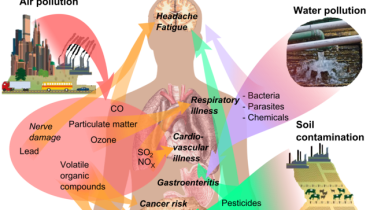In today’s world, sweets are more accessible than ever, tempting us with their sugary allure at every turn. While an occasional treat can be a delightful indulgence, consuming too much sugar can have serious consequences for our health. This article explores the harmful effects of eating too many sweets and provides useful information on how to manage and reduce sugar intake.
Understanding Sugar and Its Types
Sugar is a type of carbohydrate that our bodies use for energy. It is found naturally in many foods, such as fruits and vegetables, but it is also added to many processed foods and drinks. The main types of sugar include:
Glucose: Found in most plants and used by our bodies for energy.
Fructose: Found in fruits, honey, and root vegetables.
Sucrose: Commonly known as table sugar, derived from sugar cane or sugar beets.
Lactose: Found in milk and dairy products.
The Sweet Danger: Harmful Effects of Excessive Sugar Intake
Weight Gain and Obesity
Consuming high amounts of sugar contributes to weight gain because it adds extra calories to the diet without providing essential nutrients. Sugary foods and beverages are often high in calories and low in satiety, meaning they don’t keep you full for long, leading to overeating. Over time, this can result in obesity, which is a significant risk factor for many chronic diseases.
Increased Risk of Type 2 Diabetes
Eating too much sugar can lead to insulin resistance, where the body’s cells don’t respond properly to insulin. This condition often progresses to type 2 diabetes. Frequent consumption of sugary foods and drinks spikes blood sugar levels, forcing the pancreas to produce more insulin. Over time, the pancreas can’t keep up, and blood sugar levels remain elevated, leading to diabetes.
Heart Disease
High sugar intake is linked to an increased risk of heart disease. Sugar raises blood pressure, increases inflammation, and causes high levels of triglycerides (a type of fat in the blood), all of which are risk factors for cardiovascular disease. Studies have shown that people who consume high amounts of added sugar are more likely to develop heart disease compared to those who consume less.

Dental Problems
Sugary foods and drinks are notorious for causing cavities. When sugar is consumed, it interacts with bacteria in the mouth to form acid, which erodes tooth enamel, leading to cavities. Regular consumption of sugary substances can result in significant dental issues over time, including tooth decay and gum disease.
Liver Damage
Excessive sugar, especially fructose, can lead to non-alcoholic fatty liver disease (NAFLD). The liver metabolizes fructose, and when consumed in large amounts, it can convert the sugar into fat. Over time, this fat can build up in the liver, leading to inflammation, scarring, and even liver failure.
Impact on Mental Health
High sugar intake can negatively affect mental health. Studies suggest a link between excessive sugar consumption and an increased risk of depression and anxiety. Sugar can cause fluctuations in blood glucose levels, leading to mood swings, irritability, and fatigue. Additionally, a diet high in sugar can impact brain function and cognitive abilities.
Skin Problems
Consuming too much sugar can lead to skin issues, such as acne and premature aging. Sugar triggers a process called glycation, where sugar molecules attach to proteins in the body, forming harmful compounds called advanced glycation end products (AGEs). AGEs damage collagen and elastin, the proteins that keep skin firm and youthful, leading to wrinkles and sagging.
How to Reduce Sugar Intake
Reducing sugar intake is crucial for maintaining overall health. Here are some practical tips to help manage sugar consumption:
Read Food Labels
Check the nutrition labels on food and drinks to identify added sugars. Look for terms like sucrose, high-fructose corn syrup, and cane sugar. Aim to choose products with little to no added sugar.
Limit Sugary Beverages
Soft drinks, energy drinks, and sweetened teas are significant sources of added sugar. Replace these with water, herbal teas, or sparkling water with a splash of fruit juice for flavor.
Choose Whole Foods
Focus on eating whole, unprocessed foods, such as fruits, vegetables, lean proteins, and whole grains. These foods are naturally low in sugar and high in nutrients.
Use Natural Sweeteners
When you need to sweeten foods, opt for natural sweeteners like honey, maple syrup, or stevia. While these still contain sugar, they are less processed and often used in smaller amounts.
Cook at Home
Preparing meals at home allows you to control the ingredients and reduce added sugars. Experiment with recipes that use natural ingredients and spices to add flavor without relying on sugar.
Reduce Dessert Intake
Save desserts for special occasions rather than consuming them daily. When you do indulge, opt for smaller portions and choose healthier options like fruit-based desserts.
Stay Hydrated
Sometimes thirst is mistaken for hunger, leading to unnecessary snacking on sugary foods. Drink plenty of water throughout the day to stay hydrated and reduce sugar cravings.
While sweets can be an enjoyable part of life, it’s important to consume them in moderation to avoid the numerous health risks associated with excessive sugar intake. By understanding the harmful effects of too much sugar and implementing strategies to reduce consumption, individuals can take significant steps toward improving their overall health and well-being. Making informed choices about what we eat is crucial in maintaining a balanced diet and promoting long-term health.


















